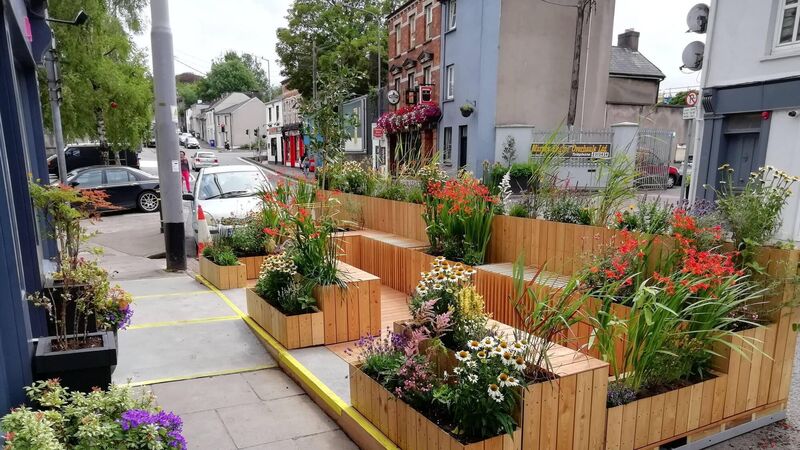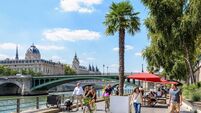Michael Moynihan: Parklet plans show a little can go a long way in a city like Cork

The parklet on Douglas St. Picture: The Transport & Mobility Forum, Cork
I’ve noticed it, don’t worry.
Coming along Douglas St it’s hard to miss that little... what is it, exactly, outside the Cork Flower Studio? A little half-enclosed zone, with low walls and some plants, seating which will allow you to sit down and chill with a pal — at a distance, of course — but is there a precise name for this unit/zone?












